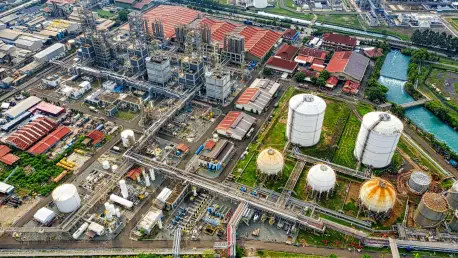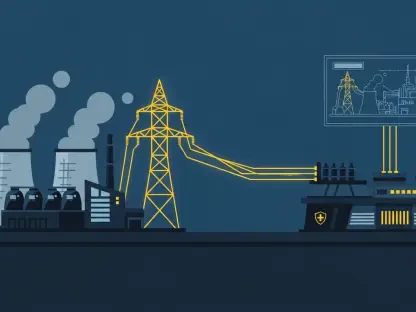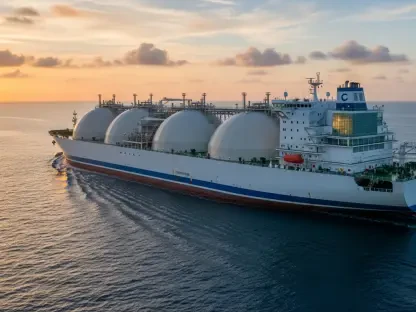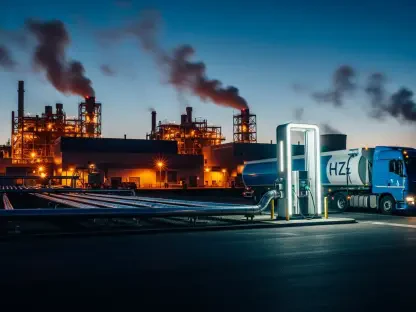As the global landscape of international trade and sanctions continues to evolve, few issues are as pressing as the European Union’s latest measures targeting Chinese entities in connection with Russia. Today, we’re joined by Christopher Hailstone, a seasoned expert in energy management and utilities, with deep insights into grid reliability, security, and the geopolitical dynamics of energy trade. With his extensive background in renewable energy and electricity delivery, Christopher offers a unique perspective on how sanctions impact global energy markets and international relations. In this interview, we’ll explore the EU’s rationale behind sanctioning Chinese refineries and trading companies, the specific roles these entities play in supporting Russia’s economy, China’s response to these measures, and the broader implications for global trade and energy security.
Can you walk us through the EU’s decision to include two Chinese refineries and a trading company in their latest sanctions package against Russia?
Certainly, Silvia. The EU’s decision to target these Chinese entities is rooted in their effort to choke off financial lifelines to Russia amid the ongoing conflict in Ukraine. The two refineries, Liaoyang Petrochemical and Shandong Yulong Petrochemical, along with Chinaoil Hong Kong, are seen as key players in sustaining Russia’s oil revenue, which is a critical source of funding for their war efforts. By sanctioning these companies, the EU aims to disrupt the flow of money that Moscow relies on, aligning with broader G7 strategies to pressure Russia economically. It’s a calculated move to hit where it hurts—Russia’s energy exports, which remain a cornerstone of their economy.
What makes these specific refineries, Liaoyang Petrochemical and Shandong Yulong Petrochemical, such significant targets for the EU?
These refineries are notable for both their scale and their reliance on Russian crude. Together, they represent about 3% of China’s massive 19 million barrels per day refining capacity, which might sound small but translates to a hefty 600,000 barrels per day. Shandong Yulong, in particular, is a major player as one of China’s newest refineries with a capacity of 400,000 barrels per day and a significant buyer of Russian oil. Liaoyang, with 200,000 barrels per day, is also deeply integrated into processing Russian crude. Their dependence on grades like ESPO and Urals—key Russian exports—makes them vital cogs in Russia’s revenue machine, which is why the EU sees them as leverage points to disrupt that flow.
Let’s dive into Chinaoil Hong Kong, the trading arm of PetroChina. Why did the EU decide to include this company in the sanctions?
Chinaoil Hong Kong was targeted because it’s a major facilitator of Russian oil purchases, acting as a conduit that channels significant revenue back to Moscow. According to the EU, this trading entity plays a direct role in buying Russian crude, thereby providing a substantial financial boost to Russia at a time when the EU and its allies are trying to cut off such income streams. By sanctioning Chinaoil, the EU is aiming to disrupt these transactions at a critical intermediary level, which could have a ripple effect on how Russian oil finds its way to markets through Chinese entities.
The EU also listed Tianjin Xishanfusheng International Trading Co. Can you explain what led to this company being sanctioned?
Tianjin Xishanfusheng was flagged for its role in helping Russia circumvent existing EU sanctions. Specifically, the EU pointed out that this company has been exporting goods of Union origin—items that are banned from direct export to Russia from the EU—to Russian entities. This kind of activity undermines the entire sanctions framework, as it allows prohibited goods to reach Russia through a backdoor route. It’s a big deal because it not only violates EU rules but also erodes the effectiveness of measures designed to isolate Russia economically, making companies like this prime targets for sanctions.
How has China reacted to the EU’s decision to sanction these companies, and what does their response suggest about future relations?
China has reacted with considerable frustration, expressing strong dissatisfaction and firm opposition through their commerce ministry. They’ve made it clear they view these sanctions as unjust and have urged the EU to stop listing Chinese companies, warning that they’ll take necessary steps to protect their firms’ legitimate interests. While they haven’t outlined specific retaliatory actions, this rhetoric signals potential friction. It suggests that China might push back through diplomatic channels or even economic measures, which could strain EU-China relations further, especially in areas like trade and energy cooperation where both sides have significant stakes.
These sanctions on Chinese entities aren’t the first, but they’ve been described as the most economically significant. What sets them apart in terms of impact?
What makes this round of sanctions stand out is the sheer economic weight of the targets. Unlike previous measures that might have focused on smaller or less critical entities, this package hits major players in China’s energy sector—refineries with massive capacities and a trading arm tied to PetroChina, a giant in the industry. These companies are deeply embedded in the global oil trade, particularly with Russia, so targeting them sends a stronger message and has a more tangible effect on Russia’s revenue. It’s a bolder step by the EU, reflecting a willingness to escalate pressure even at the risk of provoking a larger economic or diplomatic response from China.
Looking ahead, what is your forecast for how these sanctions might reshape the dynamics of global energy trade, particularly between the EU, China, and Russia?
I think we’re looking at a period of significant realignment in global energy markets. These sanctions could push Russia to seek even deeper energy ties with China, but with key Chinese entities now under pressure, alternative buyers or routes might need to be explored, potentially driving up costs or reducing efficiency for Russian oil exports. For the EU, this move reinforces their commitment to isolating Russia economically, but it risks complicating their trade relationship with China at a time when energy security is already a concern. We might see China diversifying its oil sources or retaliating with restrictions of its own, which could create volatility in global energy prices. Long term, this could accelerate shifts toward alternative energy markets or suppliers, but the immediate future likely holds more tension and uncertainty as these geopolitical chess moves play out.









